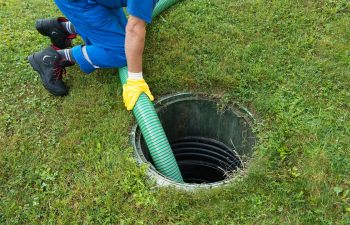
If you own a septic tank, you probably know that this type of plumbing system can save you money in the long-run. However, that doesn’t mean it is completely free. Just like any other major system or service in your home, your septic tank requires proper maintenance. After the upfront cost of installing your septic system, you’ll be able to save money in subsequent years – as long as you maintain your septic system with professional service and avoid costly repairs. At Metro Septic, we can help protect the life and function of your septic system and make your plumbing system as affordable as possible.
The Cost of a Septic System
The cost of a septic system can vary depending on a number of factors, such as the size of the system, the type of soil in the area, the location of the property, and the cost of labor in the region.
Installation costs for a septic system can range from a few thousand dollars to tens of thousands of dollars. However, the cost of installing a septic system can be considered an investment in the property, as it can increase the value of the property and provide long-term cost savings on utility bills.
In addition to the initial installation cost, there are ongoing maintenance costs associated with a septic system. These include regular pumping of the septic tank every 3-5 years, inspections, and repairs if necessary. However, proper maintenance can help prevent costly repairs and replacements down the line.
In general, while the upfront cost of a septic system can be significant, it can provide long-term cost savings and benefits to owners like you.
Ways to Avoid Additional Septic Expenses
The best way to save money on your septic system is to keep it working efficiently and effectively. To avoid unexpected and expensive septic repairs or septic replacements, we suggest the following:
- Regularly Pumping the Septic Tank: Pumping the septic tank regularly can help prevent the build-up of solid waste that can cause clogs and damage to the system. The frequency of pumping will depend on the size of your tank and the number of people in your household. You should have your septic tank pumped every 3-5 years.
- Use Water Efficiently: Using water efficiently can help reduce the load on your septic system. You can conserve water by fixing leaks, using low-flow showerheads and faucets, and only running the dishwasher and washing machine when they are full.
- Properly Dispose of Waste: Do not flush anything down the toilet except for human waste and toilet paper. Do not pour grease, oil, or other chemicals down the drain as they can damage the system. Dispose of hazardous materials properly.
- Plant Trees and Shrubs Away from the System: Planting trees and shrubs near the septic system can cause damage to the pipes and tank. Roots can infiltrate the pipes and cause clogs and damage. Keep trees and shrubs at least 10 feet away from the system.
- Keep Heavy Vehicles Off the System: Heavy vehicles can cause damage to the septic system. Do not park cars, trucks, or other heavy equipment on or near the system. This can cause the tank to collapse or the pipes to become damaged.
- Regular Inspection: Inspect the septic system regularly to ensure that it is working properly. Signs of a problem include slow drains, sewage odors, and sewage backups. If you notice any of these signs, call a professional to inspect the system.
- Use Septic-Safe Products: Only use septic-safe products such as toilet paper, detergents, and cleaning products. Products that contain bleach, ammonia, or other harsh chemicals can damage the system. Look for products that are labeled as septic-safe.
Call Metro Septic for Affordable Septic Maintenance
If you are looking for a skilled septic expert in the greater Atlanta area that will give you honest and affordable rates on maintenance services, please call Metro Septic. We value the importance of a healthy septic tank that doesn’t require extra repair fees along the way.

